Mills Mess
Other Tutorials:
- Siteswap: 3
- Difficulty (1-10): 5
- Prerequisites: Reverse Cascade
- Related Tricks: countless siteswap variations
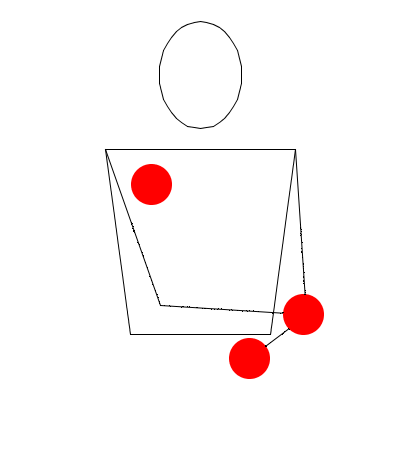
Established by well-known juggler Steven
Mills, Mills Mess is one of the most famous 3-ball tricks. It involves a
side-to-side movement of the props, with each one thrown over the other in a
never ending flow. Despite the much higher complexity of the trick,
Mills Mess has the same siteswap as a basic Cascade, with the crossing
motion of your arms
creating an extra flare that audiences love.
To learn Mills Mess, it helps to break the trick down
into smaller pieces. Starting with one ball in your dominant hand, cross
that arm over the other, and throw the ball across your body to your
non-dominant hand. At the same time, uncross and recross your arms, this
time with your non-dominant arm on top, and catch the ball with your
non-dominant hand.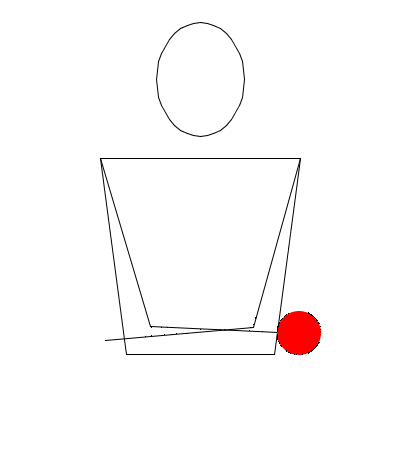
You have just learned the pattern for the first
ball of Mills Mess.
Practice until you are very comfortable leading with either hand, since you
must be able to perform the throw while managing two other balls.
The second ball starts out in your non-dominant hand, and is
thrown as your arms are uncrossing—specifically the point at which your two
arms are level with each other. The ball is then caught with your dominant
hand, now underneath your non-dominant arm.
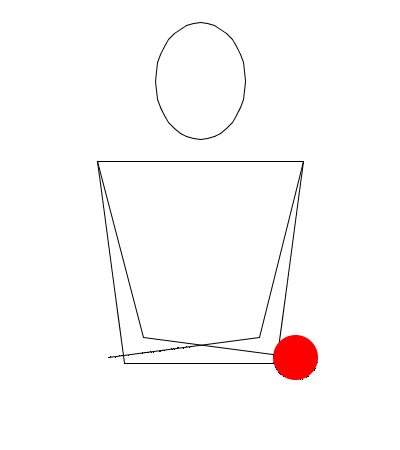
As before, practice this extensively on both sides. You
should now be ready to combine the first two steps. Start with one ball in
each hand, arms crossed. Throw the first ball as you uncross your arms, and
then throw the second ball in the same direction once your arms are level.
Then, recross your arms in the opposite configuration and catch the first
ball in your non-dominant hand, and the second ball in your dominant hand.
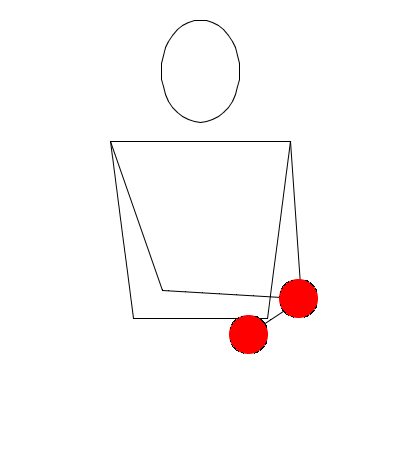
Once again, practice this until it is second nature. To
complete the Mills Mess pattern, we now have to add the third ball. This is
likely to be the most difficult step, not because the third ball's path is
difficult, but because you now have to deal with three balls simultaneously.
The third ball is thrown last, out of your dominant hand. It is caught by
the hand that throws the first ball of the next cycle.
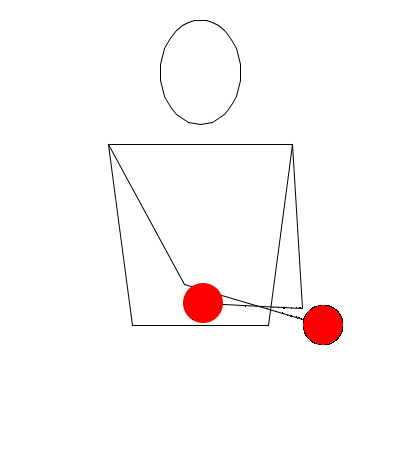
It is best to start out practicing one cycle at a time, while making sure
that all of your throws are clean and accurate. Only then should you try
chaining multiple cycles together. Make sure to maintain the flow of the
balls from left to right, since it is easy to decay into messy, vertical
column throws. The Mills Mess pattern itself is not restricted to three
balls, and can in fact be juggled with four, five, and even six balls, in
addition to other prop types like clubs and rings.
